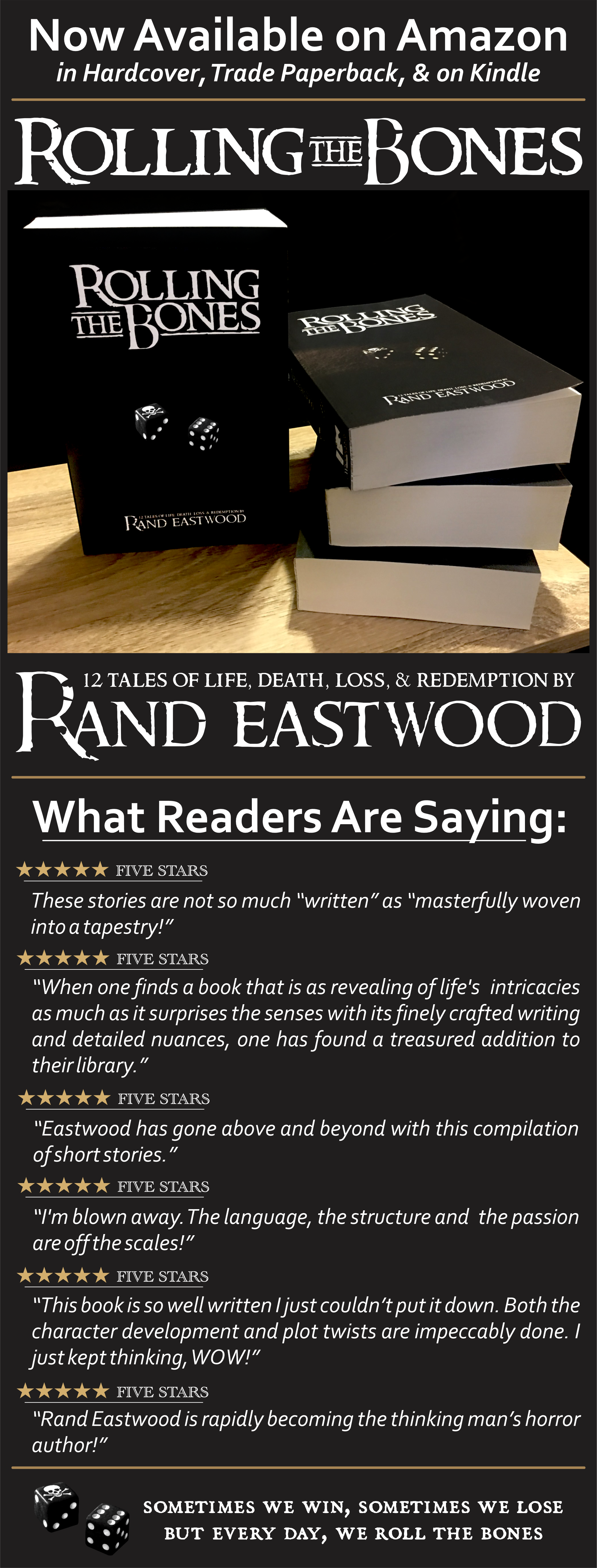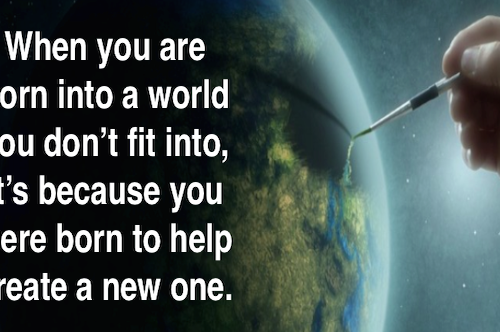NOTE: I originally wrote this article back in 2018 for my old blog (that I since took down), and so it’s been sitting in the archives; I came across it recently, in tandem with having a similar discussion on Facebook, and thought I’d update it and republish it here:
I read an article by Robert Locke on Lifehack entitled 10 Reasons Why Some People Are Always Unmotivated (which seems to no longer be published there, but is re-published here now).
Though all ten were valid points, I particularly liked #4: They do not know about mini habits, and wanted to address that idea here.
From Locke’s article:
“4. They do not know about mini habits.
When they think about getting what they want, they want to do something big once and for all. So when they fail to do so, they feel defeated and unmotivated. What they don’t know is that to achieve greatness, it’s about the small things they do every day. What to do? There’s a great book I love Stephen Guise’s called Mini Habits: Smaller Habits, Bigger Results. The concept is a simple one to help with demotivation. The idea is to start with one mini habit at a time and gradually progress. This could be walking up a flight of stairs a day, eating one less doughnut, or writing a paragraph—if you have writer’s block. The idea is to leverage the power of personal habits in reaching lifestyle goals.”
The technique of breaking things down into small steps in order to get started is one I’ve worked at implementing in my own life. I believe it was in James Altucher‘s book Choose Yourself! that I read of the idea of getting yourself into the habit of flossing by simply flossing a single tooth; it’s so easy, anyone can do it. Just one tooth, every morning. Then, since you’re at it, you figure you might as well do two teeth. Then three. As the habit develops, before long you’re flossing all your teeth every morning, and it was no big deal to get started.
Seizing on this idea, I began to break down daunting tasks, projects, chores, whatever I need to do, as far as I need to break them down in order to feel comfortable getting started. Sometimes it’s so small it seems ridiculous—like flossing a single tooth, or writing a single sentence—but it works!
I’ve watched people in my life never get started on things they need to get done—the important things, even things they actually want to do—because they let all the details, all the tasks involved, overwhelm them. There are so many unknowns, so many steps in the process, that they avoid it, procrastinate, find something else to distract them, to escape into…and the important thing never gets done.
So to avoid this myself, I try to get stuff done by starting micro-small, and building on that; yes, sometimes it seems ridiculous, or even childish—but which is the better technique? Starting with seemingly ridiculously small steps, tiny baby steps, and actually building it into something finished or accomplished over time? Or not breaking it down, and instead letting it overwhelm you to the point of never getting started at all, and thus never finishing either, never seeming to get anything important done?
Chuckle all you want, but the idea of enlisting mini-habits, or starting with tiny baby steps, works.
The first step to finishing anything, accomplishing anything, is (obviously), to get started. And a good key to getting yourself to get started is to break the tasks down, down, down, until they are so small anyone could do them, at any time. And don’t worry if it seems foolish, or looks childish or even embarrassing—break them down as far as you need to, as minuscule as you need to, until you’re able to pick one tiny step—and get started.
And breaking things down can be done in different ways: a single big project reduced to tiny steps, or multiple projects reduced to just one. For example, If I have a dozen things I want to get done on a given weekend, and am feeling overwhelmed, I choose ONE. Just one. Doesn’t matter, I pick one, something easy, and get started on it, putting the rest of them out of my mind. And the inertia is amazing, almost magical: before I know it I’m knocking the list out left and right! Same thing with one big project. I’m overwhelmed, don’t know how I’m going to get it done, so I just pick one tiny part of it, something simple and easy, and start with that. Soon the “snowball effect” kicks in, and couple hours later I find I’ve lost myself in the project and gotten tons of work done on it.
Imagine a jigsaw puzzle, comprising thousands of tiny pieces. If you just dumped it out on a table, you’d immediately become overwhelmed, and likely avoid even starting on it, let alone finishing it. But what if you set it up on a table, someplace out of the way, and committed to simply placing one piece each time you walked by? Or, breaking it down even further: one piece each day?
What would happen? That’s right—eventually, the puzzle would be finished, and it would seem like nothing, no big deal, because you broke it down into tiny steps, just a piece here and there, placed almost effortlessly, over time. Your friends might be impressed when they see such a massive project that you’ve completed—but it’ll seem to you like it was so easy to do!
You might even be asking yourself: How did I do that?
Think about it: people don’t start out smoking a pack (or two!) a day…or drinking a six-pack (or two!) a night…no, they started small, maybe half a cigarette (between gagging and coughing), or half a beer (trying not to cringe too much in front of their friends). But what happened over time?
Yep.
Now apply the same process to the big projects in your life—writing a book, building something, going back to school or learning anything new, embarking on a new exercise and/or diet program—and you’ll see the same results: tiny steps, easy to get started, develop the habit, progress over time…and finally, completion! Victory!
And this isn’t a new idea; throughout history, philosophers and thinkers have pointed out the importance of simply getting started:
“You don’t have to be great to start, but you have to start to be great.” ~ Zig Ziglar
“Do not wait to strike till the iron is hot; but make it hot by striking.” ~ William Butler Yeats
“Step by step and the thing is done.” ~ Charles Atlas
“The secret of getting ahead is getting started.” ~ Mark Twain
“What you do today can improve all your tomorrows.” ~ Ralph Marston
“You can’t build a reputation on what you are going to do.” ~ Henry Ford
“Small deeds done are better than great deeds planned.” ~ Peter Marshall
“Start where you are. Use what you have. Do what you can.” ~ Arthur Ashe
And in author and Dilbert creator Scott Adams’ book How to Fail at Almost Everything and Still Win Big, he discusses the idea of just getting started in the context of his gym routine. No matter how much he doesn’t feel like working out, he made a deal with himself: he goes. He drives to the gym, shoulders his gym bag, and goes inside.
Once inside, if he looks around and STILL can’t make himself do it, that’s okay; he goes home. But he says this rarely happens—most of the time, once he’s there (started), the inertia kicks in and he goes ahead and works out. By simply driving to the gym, then parking, then walking inside (breaking down the tasks, then getting started) more often than not he’s able to continue, and to finish.
And since I read about Adams’ technique, I’ve adopted it myself: whenever I don’t “feel” like working out, I at least get myself to the gym parking lot, making the deal with myself that THEN, if I STILL don’t want to work out, well then, it’s okay to go home. And guess what? Nearly every time, I go ahead and work out. So whaddya know…it works!
So the entire point of this article is this: do whatever it takes to at least get started.
And another thing: I’ve come to realize that my “magical magnifying mind” typically predicts the process of some task or project to be much more difficult, and entail many more problems, than what turns out to be true in reality, once I begin the work; so again, I put the likely exaggerated “pain in the ass” speculations aside, choose one tiny part I feel I can do easily, and begin. I’m finding it increasingly true that the whole thing tends to go much more smoothly, without nearly as many problems or hassles, than I had anticipated.
A good example of simply making myself start is when I’m writing one of my more in-depth blog articles. Approaching the project, I often feel totally overwhelmed, I have no idea how I’m going to structure it, or how I’m going to tie it all together, or whether or not it’ll even make any sense when it’s done, or whether I’ll come up with anything of merit to write about the topic, or whether I’ll find enough material on it, or whether it’ll be interesting or informative or valuable or at least entertaining to readers once it’s finished…
Thinking that way, I’ll be more likely to collapse convulsing in fetal position than write the article!
So instead, I put it all out of my mind, and sit down, open Scrivener (BTW – on any longer writing project, I’d be lost without Scrivener, developed by a writer for writers, I highly recommend it to anyone serious about writing), and start tinkering on it. Write just one sentence. Insert just one link to a relevant source, or to something that prompted me to write the article in the first place. I often have relevant bits and pieces already filed away on my computer, as the idea was developing, so I call those up, see what I’ve got. Before I know it, I’m completely absorbed in the process, a little online research usually offers up more than enough material, and the article begins to grow and take shape, and eventually I have something publishable.
Usually, anyway…
But sometimes not. But that’s okay, it sits there collecting dust in my draft folder, and I can always come back to it later, when I stumble across that incidental article that adds another element, or a different but relevant point of view, thereby strengthening my piece and helping bring it to fruition.
So I go back, open it back up, brush the dust off, and once again…get started.
The point of all of this is to START, to break it down to the point that you CAN start. It’s totally up to you, do what you need to do, reduce it to micro-steps, however small, so that you don’t feel so reluctant to start.
Floss a single tooth. Place a single piece in the jigsaw puzzle. Just drive there and check it out. Write a single sentence. Bookmark a single source. Create a text file, give it a title and save it. Create a folder on your desktop. Break the project down into a list of steps and choose just one, however easy, and do just that part for now (I often use a dry-erase board for this process).
Approaching your projects in this way is much like cresting the very top of that first big hill on a roller coaster, hitching and jerking and reaching the summit ever so slowly, and you’re wondering what the hell you were even thinking, getting on this thing in the first place….then BAM!, you’re on the downhill side and it all takes off, and you have a blast, feeling a tad bit of accomplishment at the end—if it be merely that you survived the ride!
You did it! All you had to do was get started, get on the ride! The rest is history…
So, you wanna get more stuff done? Break it down into bits and pieces that seem doable—no matter how small; and if it still seems overwhelming, or you are still avoiding or procrastinating, break it down even further—down to one single, tiny, minuscule, nothing of a step, and…
START.
Like/Follow Lifeology Blog on Facebook • View Rand’s Books on Amazon
Visit Lifeology Store • Like/Follow Lifeology Store on Facebook
A Note To Readers:
If you found this article (or any of the others, for that matter) interesting, informative, entertaining, etc., please consider subscribing to the Lifeology email newsletter: simply enter your email into the form below (also in the right sidebar)—or, if you prefer, just use this simple quick sign-up form.
↓↓↓ Also, please hit the “Like” (thumbs up) button below. Thanks! ~ Rand




















